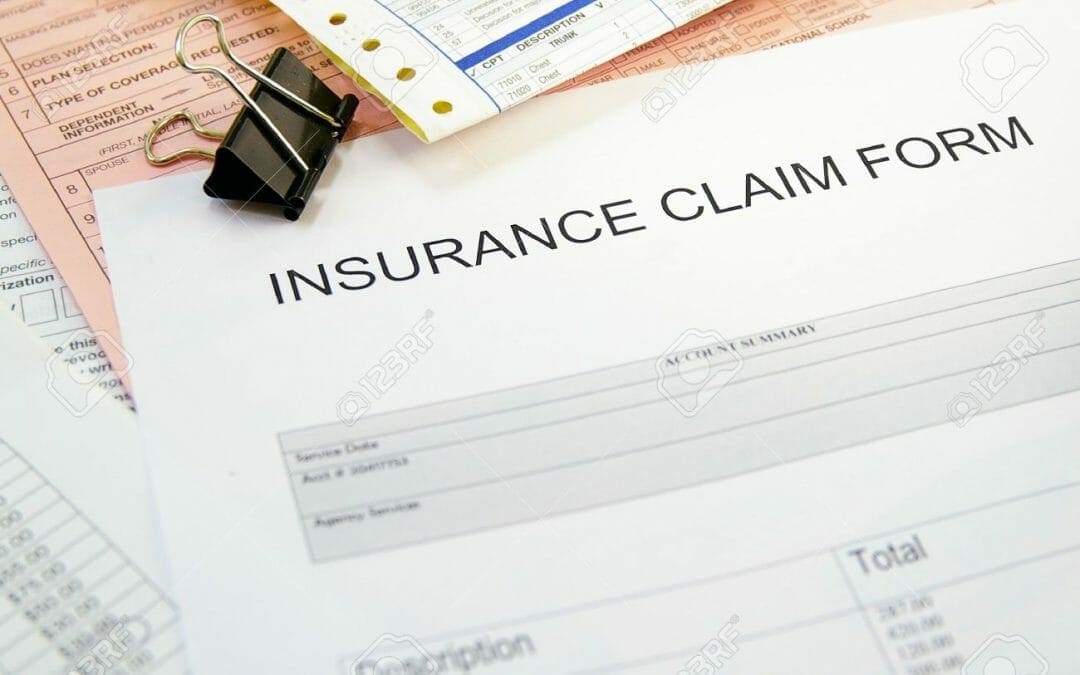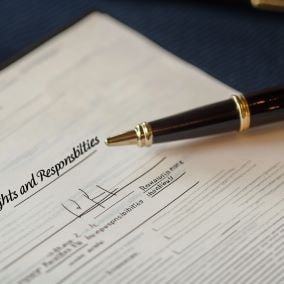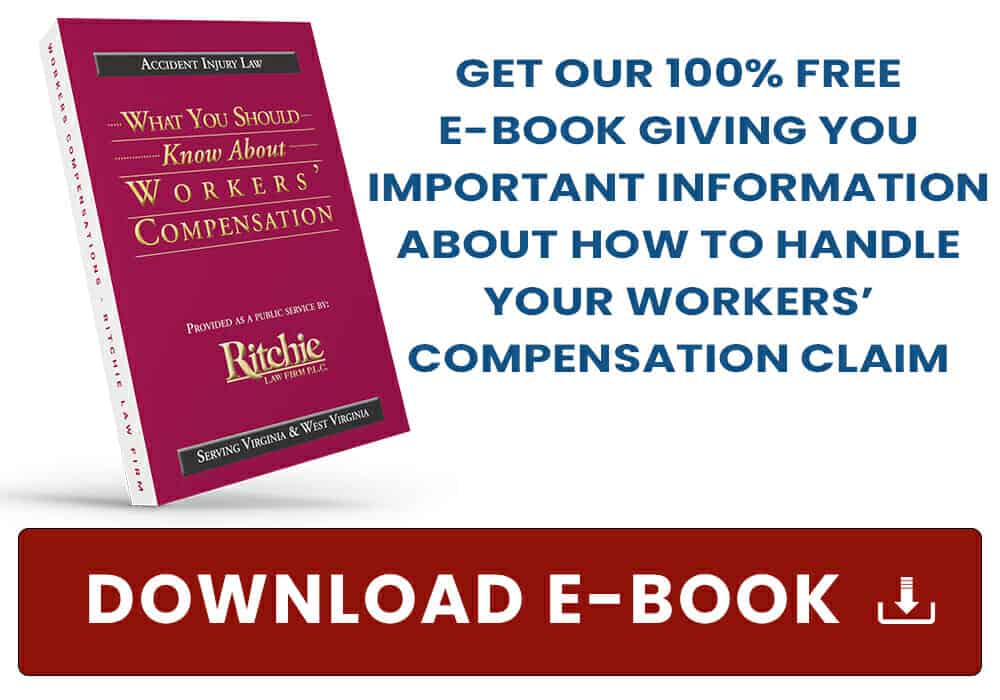VIRGINIA WORKERS’ COMPENSATION: WHAT’S IMPORTANT?
If you’ve been injured on the job, there are some important things you need to know to help avoid running into snags with the workers’ comp insurance carrier. For Virginia workers’ compensation, what’s important for you to know? Ensuring that you are complying with the Virginia Workers’ Compensation Act is essential. One of the most important things you can do to make sure you are complying with workers’ comp regulations is to PUT EVERYTHING IN WRITING! We will discuss your rights and responsibilities with regard to Virginia workers’ compensation in this article.
About the Virginia Workers’ Compensation Commission
The Virginia Workers’ Compensation Commission (VWC) is a pivotal government agency responsible for administering the workers’ compensation program in the Commonwealth of Virginia. The Commission is led by a senior leadership team consisting of three Commissioners, an Executive Director, and a Chief Deputy Commissioner. The individuals who currently serve as Commissioners are appointed by the General Assembly and play crucial roles within the Commission structure. Commissioner Marshall currently serves as Chairman, and the Commission’s Chief Deputy Commissioner is Honorable James J. Szablewicz.
The VWC’s mission is to serve injured workers, victims of crimes, employers, and related industries by providing exceptional services, resolving disputes, and executing duties entrusted to it by the Commonwealth of Virginia. This dedicated team ensures that the rights and needs of Virginia workers are met with fairness and efficiency. VWC’s Code of Ethics is fundamental in supporting the organization’s mission, fostering an environment of integrity and ethical conduct.
Virginia Workers’ Compensation Laws and Coverage
Under the Virginia Workers’ Compensation Act, businesses with two or more employees are required to carry workers’ compensation insurance. The Virginia Workers’ Compensation Commission (VWC) oversees the enforcement of these laws, ensuring that employers comply with the state’s requirements. This includes administering benefits and resolving disputes that arise. Whether you run a small business or a large corporation, if you have at least two employees, you must have workers’ compensation insurance. Sole proprietors are exempt from this requirement unless they hire subcontractors. The VWC plays a crucial role in making sure that all employers in the Commonwealth of Virginia adhere to these regulations, protecting both employees and employers.
Filing a Claim with the VWC
If you suffer a work-related injury or illness, it’s crucial to act quickly. Employees have 30 days from the time of the incident to report it to their employer. Once notified, the employer must file a report of the accident with the Virginia Workers’ Compensation Commission within 10 days. Timely reporting is essential; failure to do so may result in the employee not receiving workers’ compensation benefits. The VWC is responsible for processing and resolving these claims, ensuring that injured workers receive the benefits they are entitled to under the law.
Benefits and Awards
Workers’ compensation insurance provides a range of benefits to employees who are injured or become ill due to their job. These benefits include disability payments for temporary or permanent disabilities, coverage for medical expenses related to work injuries or illnesses, and ongoing medical treatments such as physical therapy. Additionally, if an employee is unable to work due to a work-related injury or illness, they may receive wage loss benefits. In the unfortunate event of a work-related death, death benefits are provided to the employee’s dependents. Workers’ compensation insurance also covers repetitive injuries like carpal tunnel syndrome and occupational diseases resulting from exposure to harmful chemicals or allergens.
Dispute Resolution
The Virginia Workers’ Compensation Commission is dedicated to resolving disputes related to workers’ compensation in a fair and impartial manner. The Commission offers a process that includes mediation, arbitration, and appeals to address conflicts between employees, employers, and insurance carriers. This ensures that all parties have a chance to present their cases and receive a just resolution. The VWC’s commitment to resolving disputes helps maintain trust and fairness in the workers’ compensation system.
Key Forms and Documents
To process and resolve workers’ compensation claims, the Virginia Workers’ Compensation Commission requires several key forms and documents.
-
Claim Form
-
Award Agreement
-
1st Report of Injury
-
Attending Physician’s Report
These forms are located on the Virginia Workers’ Compensation Commission’s website and are essential for establishing the elements of a compensable claim, providing the basis for an award of compensation. Properly completing and submitting these documents is crucial for the smooth processing of your workers’ compensation claim.
Understanding Your Rights and Responsibilities
As an injured worker in Virginia, it’s essential to understand your rights and responsibilities under the Virginia Workers’ Compensation Act. The Virginia Workers’ Compensation Commission (VWC) is responsible for enforcing the state’s workers’ compensation laws, administering benefits, and resolving disputes.
Your Rights:
-
The right to file a claim for workers’ compensation benefits if you’re injured on the job or contract an occupational disease.
-
The right to receive medical treatment for your work-related injury or illness.
-
The right to receive wage loss benefits if you’re unable to work due to your injury or illness.
-
The right to appeal a decision made by the VWC.
Your Responsibilities:
-
Reporting your injury or illness to your employer within 30 days of the incident.
-
Cooperating with your employer and the VWC during the claims process.
-
Providing accurate and complete information when filing your claim.
-
Attending medical appointments and following treatment plans as recommended by your healthcare provider.
Understanding these rights and responsibilities is crucial for navigating the workers’ compensation process effectively. The VWC is dedicated to ensuring that Virginia workers receive the benefits they are entitled to while maintaining compliance with the Virginia Workers’ Compensation Act.
Getting Help with Your Claim
If you’re having trouble with your workers’ compensation claim, there are resources available to help. The Virginia Workers’ Compensation Commission (VWC) offers assistance to injured workers and employers through its website, phone hotline, and in-person services.
Resources:
-
The VWC website (vwcc.virginia.gov) provides information on the claims process, forms, and FAQs.
-
The VWC phone hotline (877-664-2566) is available to answer questions and provide assistance.
-
The VWC offers in-person services at its offices in Richmond and other locations throughout the state.
-
The VWC also provides a list of approved workers’ compensation insurance carriers and their contact information.
Tips for Getting Help:
-
Keep detailed records of your injury, medical treatment, and communication with your employer and the VWC.
-
Be prepared to provide accurate and complete information when filing your claim.
-
Don’t hesitate to ask for help if you’re having trouble with your claim.
-
Consider seeking the advice of an attorney specializing in workers’ compensation law if you’re having trouble with your claim.
By utilizing these resources and following these tips, injured workers can navigate the workers’ compensation process more effectively. The VWC is committed to supporting injured workers and ensuring they receive the benefits they deserve.

Virginia Workers’ Compensation: What’s most important?
-
Get communication from employers in writing on company letterhead. If your employer tells you that they will accommodate your work restrictions, where you won’t have to perform certain heavier duties, it is helpful to get that offer in writing on company letterhead. Many times, we see that employers will make an offer of light-duty work but then demand that the worker do the heavier duties anyway.
-
Get work restrictions from your doctor in writing. If you doctor says you must work light-duty and gives you restrictions, ask him or her to put those restrictions in writing. Frequently, we see there can be a disconnect between what the doctor says and what we as patients hear. Or, we also see problems with the doctor forgetting the restrictions he or she recommended. Having the restrictions communicated in writing is the best bet to prevent any miscommunication.
-
Keep a written “log” of when you were off work for your injury, doctor appointments, etc. When you are off work due to your injury or when you miss for attending medical appointments, it is important to keep a log or notebook of the days and times that you missed as well as the reason for the time off. Often, payroll and human resources departments can get it wrong and miscalculate the time you missed. You will want to be compensated for all time that you missed from work, if that time is covered by worker’ comp. In Virginia, you must lose seven days of work before workers’ comp will begin to pay on your claim for lost time.
-
Keep a written mileage reimbursement log. Just like the written time off log, it is also important to keep a written log of all the mileage you accumulate going to medical appointments and job searches. For this log, be sure to record the date, name and address of the location where you traveled, and the total number of miles both to and from the location.
-
Write down all of your job searches. If you are released by your doctor to return to light-duty work and your employer can’t give you a job with light-duty restrictions, you will be required to look for work that matches your physical restrictions. You will be required to conduct at least 5 job searches per week and you should record all of those searches in a notebook or log. Write down the date that you contacted the employer or applied for the job as well as the name and address of the potential employer/job.
-
Be SURE to file a written Claim for Benefits form, either online or through the mail. Last, BUT CERTAINLY NOT LEAST, you MUST file a Claim for Benefits form with the Virginia Workers’ Compensation Commission. That can be accomplished one of several ways. You can go to the Virginia Workers’ Compensation Commission (VWCC) website and fill out a form online, or you can print the form and fax or mail it to the (VWCC). Usually, after you report your injury to your employer, you will receive in the mail a paper version of the Claim for Benefits Form. Either fill this form out and mail or fax it to the address on the form or complete the form online. THIS IS VERY IMPORTANT!!
Talk To An Experienced Virginia Workers’ Compensation Lawyer
If you have questions about how to describe your work injury or any other questions about your Virginia Workers’ Comp claim, it is wise to contact a lawyer for some advice.
The Virginia Workers’ Compensation Commission helps develop a supportive environment for businesses and entrepreneurs in Virginia, facilitating compliance and protecting both employers and employees.
If you’ve been injured on the job, it is helpful to talk to a lawyer who is experienced in workers’ compensation claims. At the Ritchie Law Firm, you can talk to us for FREE . . . NO STRINGS ATTACHED! We can give you advice on your claim before you make a decision that could damage your case. Check out our article on “How Much Does a Workers’ Comp Lawyer Cost” here.
At the Ritchie Law Firm, we have successfully handled thousands of workers’ compensation claims. We’ve seen injured workers who have trusted the insurance adjuster only to find out that their time to file the paperwork to protect their claim had expired.
Virginia Workers’ compensation is a complex system that can be very difficult to navigate. For instance, do you know all of the benefits you might be entitled to or whether you are entitled to pain and suffering for your workers’ comp claim? We can help with this.
Be very careful to make certain that your rights are protected before you sign anything. Talking to our workers’ comp lawyers about your claim is free. If we take your case, we don’t get a fee unless we win your case. There is no risk to you to get some information about your case before you make any decision that might negatively affect its outcome.
For more than 45 years, the Ritchie Law Firm has successfully helped thousands of injured workers navigate the complex workers’ compensation process. The Ritchie Law Firm specializes in serving injury victims. We never represent insurance ompanies or corporations. If your workers’ compensation case is going to hearing, you will want a trial expert on your side. We are board certified trial specialists through the National Board of Trial Advocacy. The attorney you choose for your workers’ compensation case can make all the difference in the outcome of your case. Choose wisely. . . you can talk to us for free. Call today 800-277-6124 or fill out the form below. Ritchie Law Firm is a personal injury law firm devoted to helping individuals who have suffered serious injuries as a result of a job injury.
Ritchie Law Firm
Don’t Get Hurt Twice!
You can talk to us for FREE – free consultation
Call today 540-388-0533, fill out the form below or
download our free e-book here
540-388-0533
Ritchie Law Firm is a personal injury law firm devoted to helping individuals who have suffered serious and catastrophic injuries or lost a loved one as a result of someone else’s negligence. Ritchie Law Firm serves all of Virginia, while helping clients in cities and surrounding areas of Harrisonburg, Charlottesville, Staunton, and Winchester also serves clients in West Virginia, including Martinsburg, WV.
Ritchie Law Firm serves injured workers in all of Virginia while helping clients in cities and surrounding areas of Harrisonburg, Charlottesville, Staunton, and Winchester. Check out case studies from some of the cases we’ve handled by clicking here.





